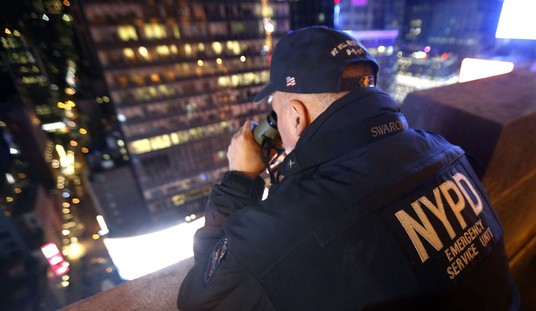I’m against atrocities. I’m against genocide. I’d bet you are too.
So why is it somehow so troubling that President Barack Obama, citing a “core national interest” and “core moral responsibility” of the United States, has now ordered into existence an inter-agency Atrocities Prevention Board?
The name alone is not a good sign. With its implication of bureaucrats battling evil, it sounds like satire. An outtake, perhaps, from Graham Greene’s novel, Ministry of Fear, or Washington’s variation on Saudi Arabia’s Committee for the Promotion of Virtue and the Prevention of Vice. In editorializing last week on this new Atrocities Prevention Board, the Wall Street Journal rightly warned its readers that “this is not an item from the Onion.”
Nor is the format promising. At least once per month, and more often in times of emergency, the Atrocities Prevention Board, or APB, will convene representatives of State, Defense, Treasury, Justice, Homeland Security, USAID, the Joint Staff, the U.S. Mission to the United Nations, the Office of the Director of National Intelligence, the CIA, and the Office of the Vice President to hammer out “the development and implementation of atrocity prevention and response policy.” The White House is calling this approach “whole of government,” and no doubt everyone will have something to toss into the pot. But if this pileup is now to become yet another piece of entrenched federal bureaucracy, it sounds like a formula for steering policy to the same lowest-common-denominator level as the average National Intelligence Estimate. (I can only guess that they omitted the Post Office and the Department of Transportation because the former is going out of business, and the latter doesn’t answer its phones.) Whether that means the entire exercise will be irrelevant, or actively dangerous, remains to be seen.
Nor, if you have reservations about the priorities of Obama’s National Security adviser Samantha Power, does it augur well that she is heading this new board — becoming, as some have already dubbed her, the administration’s Atrocities Czar. As James Gibney astutely notes on Bloomberg, “Can the Atrocities Prevention Board Define ‘Atrocity‘”? Gibney asks, is it an atrocity that a vast majority of Egyptian married women have undergone genital mutilation? Is it an atrocity when an Israeli missile goes astray and kills a Palestinian family? Is it an atrocity when the Japanese government fails to regulate its nuclear plants, and people die. He asks, “Just where does one draw the line?”
That’s an especially good question given this administration’s approach to date to atrocities (as I’d define them) on its watch. In Libya, the U.S. led from behind to remove Gaddafi — who was a vile tyrant, but not in recent years a prime threat to the U.S. But in the case of Iran, where the regime runs global terrorist networks, is pursuing nuclear weapons, and has been threatening for years to obliterate the U.S. ally and democratic state of Israel, the Obama administration confined itself to bearing “witness” and looked to the long “arc of history,” while Iranian protesters were beaten and shot in the streets. In Syria, where the regime is in bed with Iran, the death toll now tops 10,000, after more than a year of rebellion against Assad’s brutal rule — and the U.S. looks on. And in North Korea, where the entire system of government qualifies as an atrocity, the same old Pyongyang shakedown routine has carried on, with North Korea’s 2009 nuclear test and 2012 ballistic missile test (excuse me, “satellite launch”) punctuated by U.S. offers of talks, and food aid for North Koreans whose chief obstacle to feeding themselves is that they are hostage to their country’s murderous government.
The biggest problem with the unveiling of the Atrocities Prevention Board is that it is not actually the core responsibility of the United States government to prevent atrocities elsewhere in the world. It is the core responsibility of the U.S. government to defend the United States and uphold its constitution. That may well entail taking action to prevent atrocities abroad; there can be enormous justification for doing exactly that, and America has often done so. But it is alarming when the same players who protest the idea of America leading from in front, and who revile America for behaving as a superpower in the defense of its own interests, are eager to mold America as a philanthropic emergency squad on call for the planet. That’s a setup in which America has all the responsibility for others, but no rights to look out for itself. In deciding what constitutes an atrocity, and if, when, and how America in the service of its own interests and values should do something about it, what’s badly needed is not another committee. What’s needed is good judgment at the top.









Join the conversation as a VIP Member